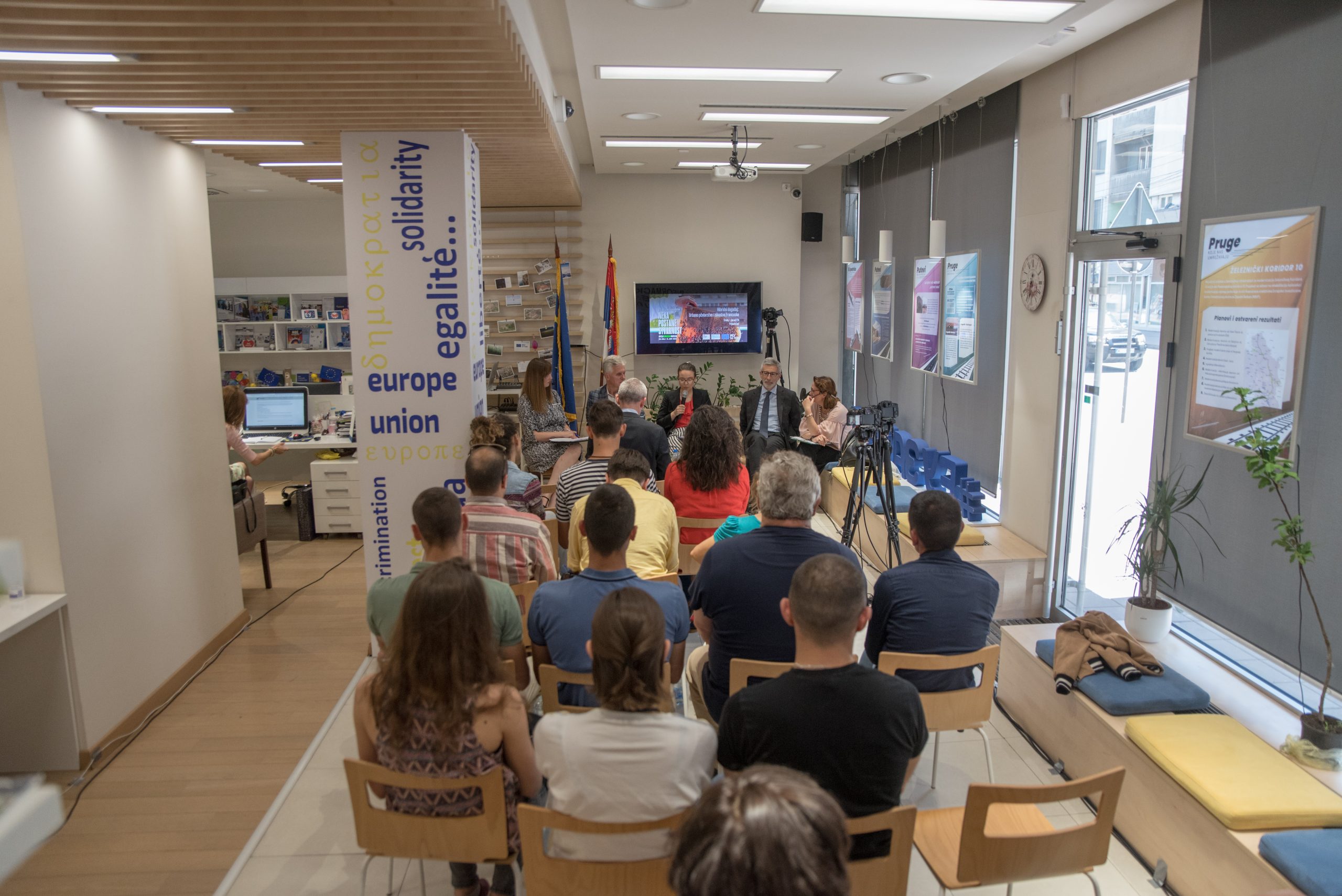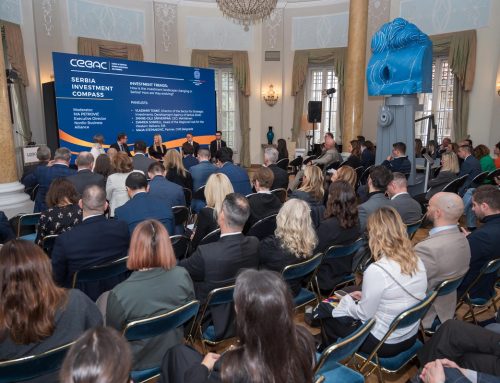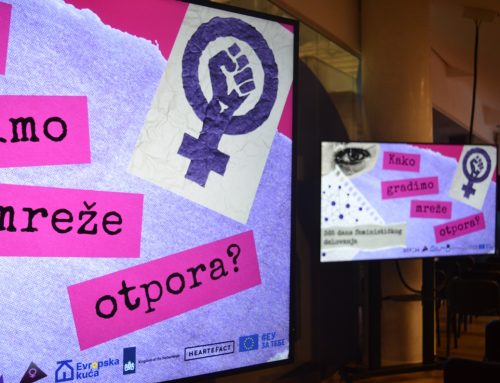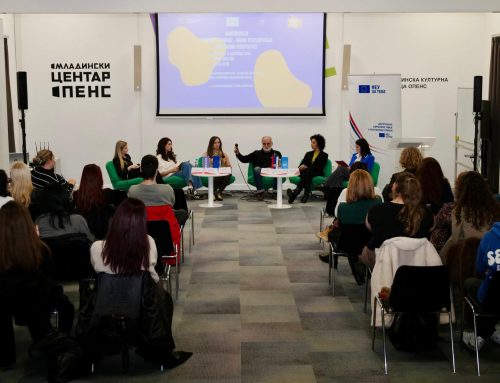Urban beekeeping is a practice that improves the environment of cities, makes a positive impact on biodiversity, and reduces the negative impact on our daily lives and health. At the EU Info Point Niš, we discussed the concept of urban beekeeping and heard more about France and Serbia’s experience in that area from His Excellency, French Ambassador to Serbia Pierre Cochard, Head of the French Institute in Niš Monika Damnjanović, and President of Belgrade association of beekeepers Stanko Rajić.
Ambassador Cochard explained the importance of the “Green Embassy,” a project launched in 2015 following the Climate Change Conference held in Paris the same year. “Green Embassy” is a global and progressive approach to environmental protection led by French diplomatic missions around the world. As part of the initiative, the Embassy of the French Republic in Belgrade has a few years ago set up beehives on the rooftop of the building and invited the staff to maintain and care for them.
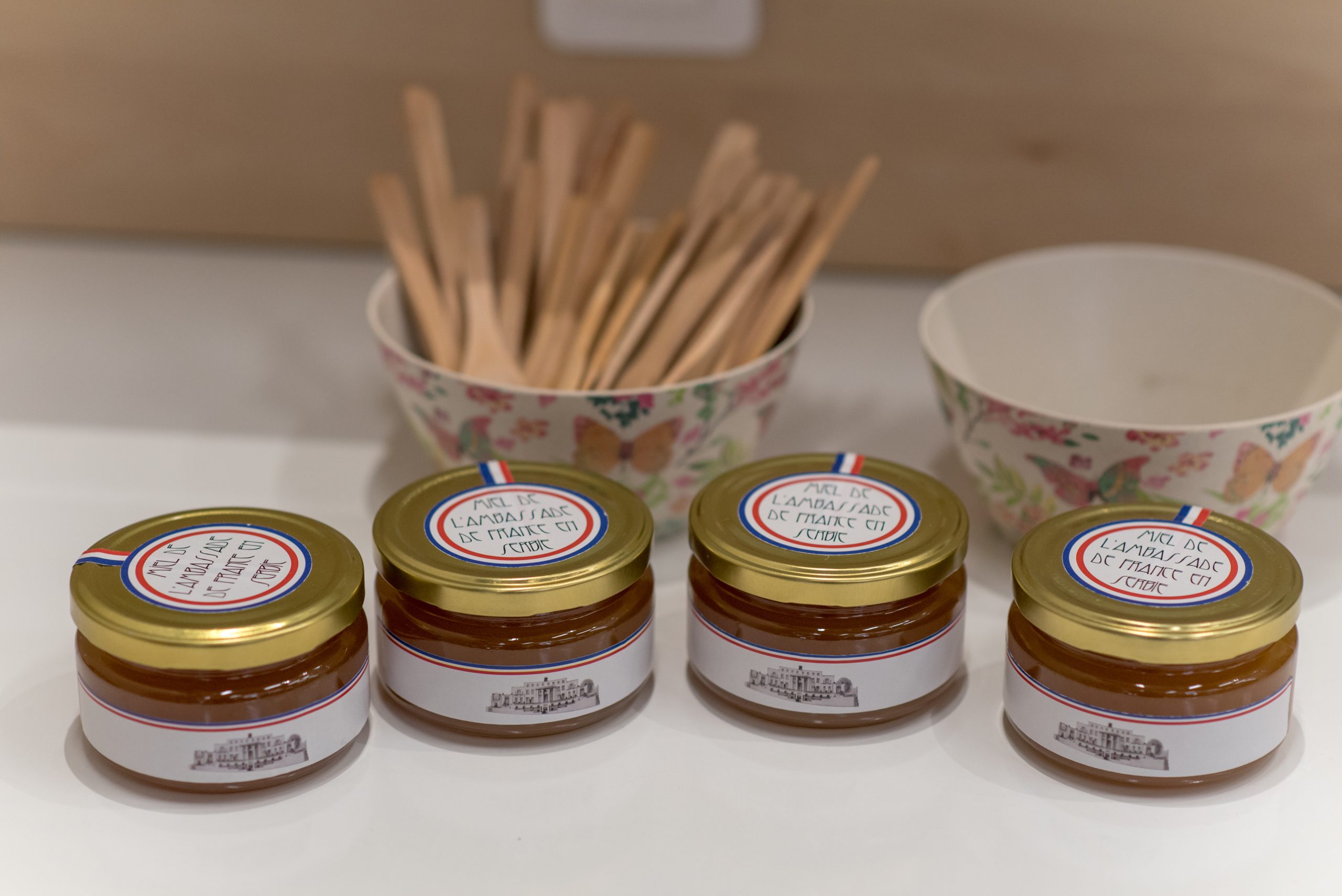
“French embassies are actively working to reduce consumption and costs of heating and electricity, the use of paper in everyday work, improve the insulation of embassy buildings, and reduce the use of cars as a means of transport for employees,” said Ambassador Cochard, adding that such an approach has a high educational value for embassy staff and its partners.
This approach and the formation of working groups composed of employees enabled the embassy to become more energy-efficient, and empowered employees to be more committed to sustainable development and environmental protection. Therefore, the enthusiasm of the employees regarding bees and beehives in the embassy comes as no surprise.
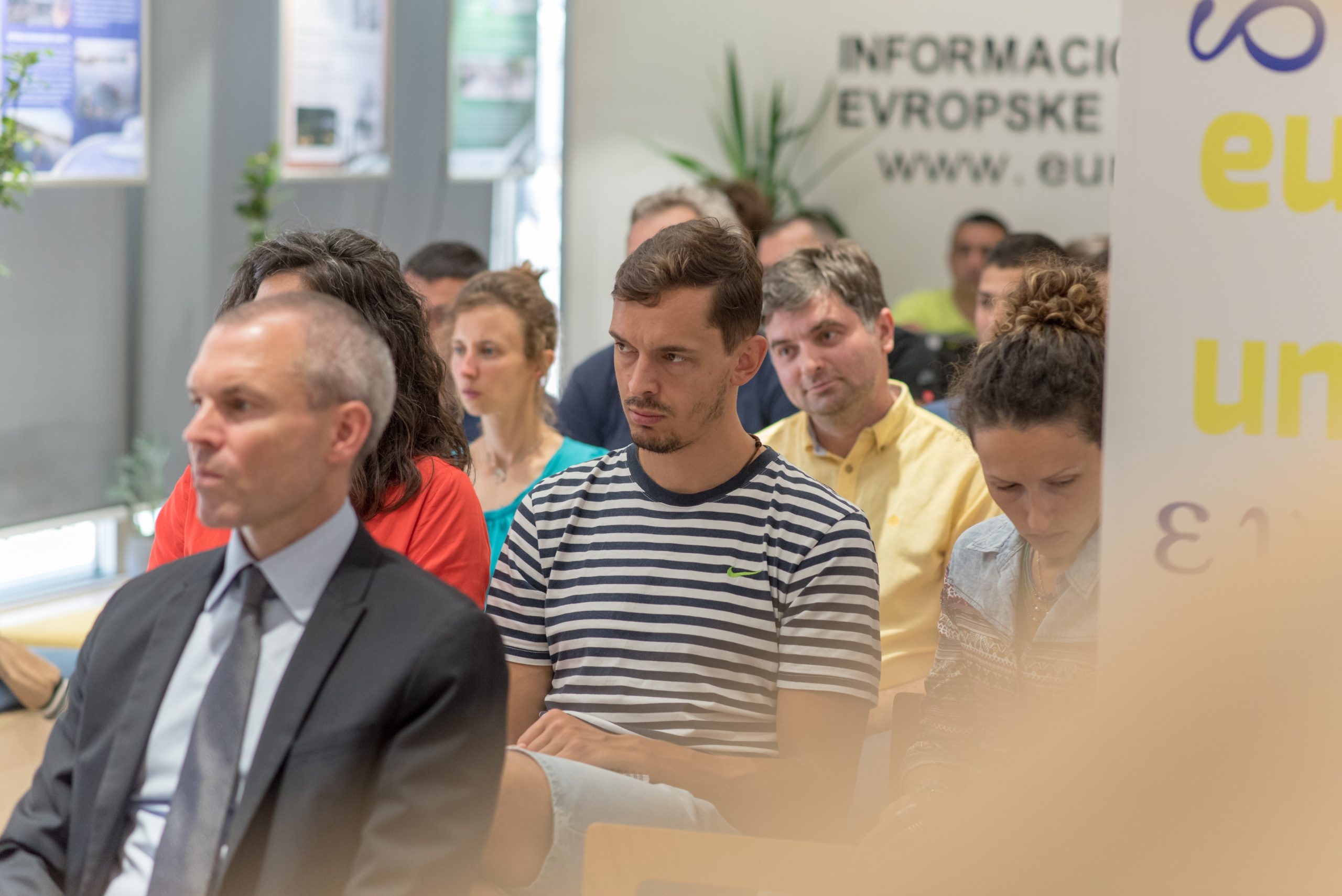
“While working at the embassy, I used my lunch breaks to spend time with bees and work around them,” says Monika Damnjanović, head of the French Institute in Niš, emphasizing that the training they received from Stanko Rajić of the Belgrade Association of Beekeepers to quickly master the processes of feeding and monitoring bees. “As much as they are independent, bees need dedicated work of beekeepers,” Damnjanović stresses, recalling the period of renovation of the embassy when it was necessary to seal the beehives every day and protect the bees from dangerous substances used in construction.
Stanko Rajić is a beekeeper with thirty years of experience who has been supporting the French Embassy in Belgrade in this project from the very beginning. The results are high-quality honey from another Belgrade rooftop or a jar of branded French honey from Košutnjak. As a beekeeper, he gladly accepts every opportunity to break the myths about the bee as a dangerous animal that has no place in the city, so he did not miss the opportunity to participate in the project of urban beekeeping on the Embassy’s rooftop. According to him, there are over 3000 escaped swarms of bees in Belgrade; in 2011 the Association of Beekeepers launched an initiative to collect and save these swarms.
“The French embassy is the first to recognise what we are doing, and in 2019 we set up two beehives on the Embassy’s rooftop, with the staff enthusiastically accepting the challenge of caring for them.” To illustrate that unyielding enthusiasm, last week, as many as ten employees of the Embassy participated in extracting the honey used by the embassy for promotional purposes.
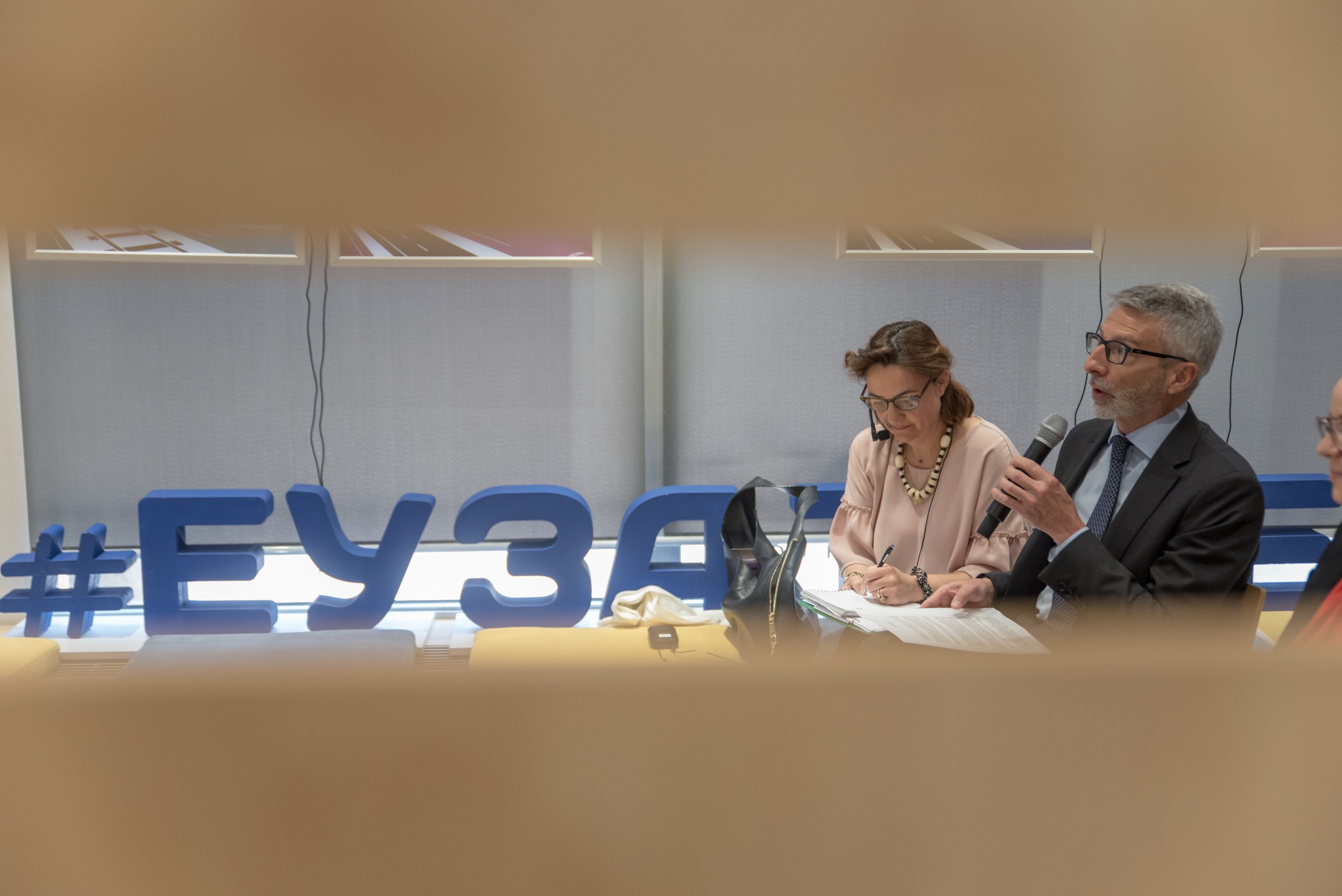
To save the escaped swarms, and encourage urban beekeeping bees, members of the Belgrade Association of Beekeepers established an asylum as part of the training of novice beekeepers. In addition to educating beekeepers, the Association believes it is equally important to raise the general public’s awareness and overcome prejudices against bees. That is why they believe the spread of bee colonies in Serbia, including through urban beekeeping, to be an important aspect of education and bringing people and bees closer together.
The event is organized within the EU Green Week 2022, running from 30 May-5 June, with the aim of promoting the results of support offered to Serbia by the European Union and its member states concerning the Green Agenda for the Western Balkans, circular economy, pollution, and biodiversity conservation.
With financial support from the EU, Serbia is working to develop and implement environmental plans at a strategic level – a sustainable system of environmental protection that creates a healthier environment and raises the quality of life.

